ETH News
All stories that have been tagged with Agricultural sciences
Crop forecasting from space
News
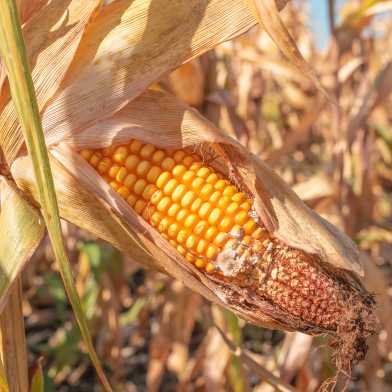
ETH spin-off Terensis is able to forecast the harvest yield and climate risks such as droughts and frost with the help of satellites. This not only helps farmers to plan. Authorities and insurance companies can also predict damage more efficiently.
How an ETH alumnus ended up growing coffee in Zambia
- News
- Homehero
- Globe magazine
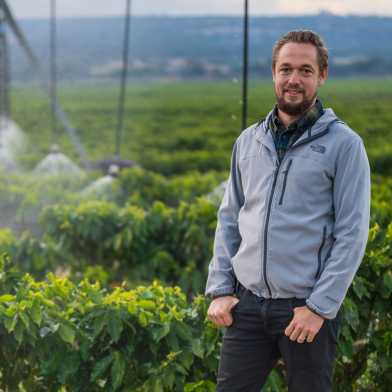
ETH agronomist Fridolin Stocker worked on Swiss farms before discovering his fascination for Africa. Today he manages a coffee farm in Zambia.
Mosaic grassland landscapes are the most beneficial
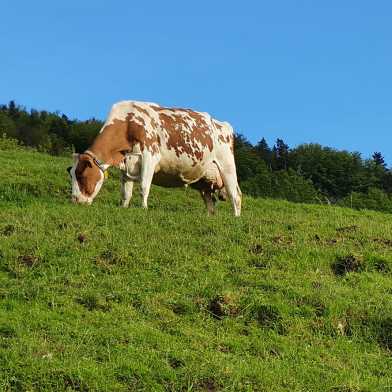
Like forests, grassland provides numerous ecological, economic and social benefits. Researchers have investigated ways to maintain and improve these benefits in the Swiss canton of Solothurn.
Twisted pollen tubes induce infertility
News
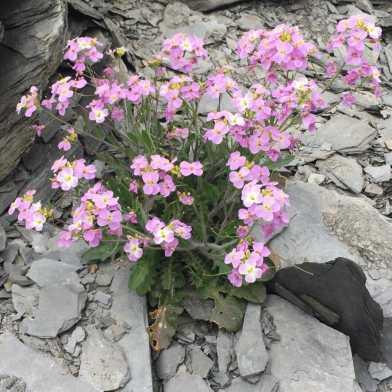
Plants with multiple sets of chromosomes have advantages over their relatives with a double set. But why they often start out infertile was only partially understood. Biologists at ETH Zurich have now discovered a new reason for the initial difficulties.
Pesticide-free as a new pathway for agriculture
- News
- Zukunftsblog

We can transition to pesticide-free agriculture without converting to organic farming. Robert Finger outlines the advantages and challenges involved.
What can bulls tell us about men?
News
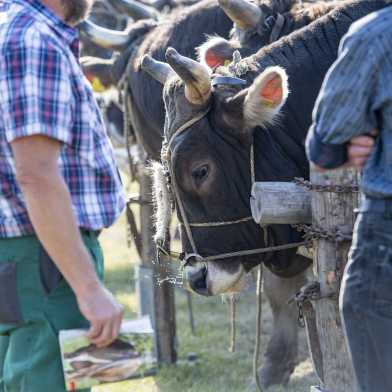
Researchers have found genes in the reproductive organs of bulls that influence fertility. The findings can be transferred to humans, as these genes are also present in men.
A “cultivation battle” for legumes
- Zukunftsblog
- News

Achim Walter believes increased cultivation of legumes would bring major benefits. But how to persuade farmers in Switzerland to make the switch?
How ETH knowledge and local expertise are helping the reconstruction of Ukraine
Homehero

Two years ago, Russia launched its war of aggression against Ukraine. One direct consequence of the conflict is the destruction of buildings and infrastructure. Now an exhibition in the ETH Main Building entitled “ETH with Ukraine” is showing how buildings, facilities and the environment in Ukraine can be protected or restored.
ETH Zurich researchers study one of the world’s darkest rivers
News
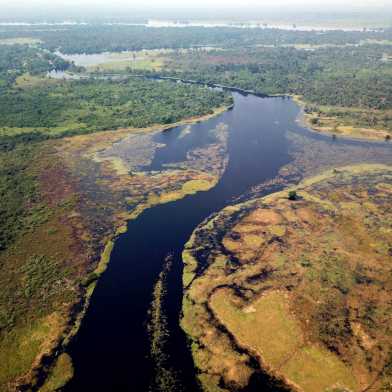
They set out to study the Congo Basin’s carbon cycle and in the process have become aware of one of the world’s darkest blackwater rivers: the Ruki. In the first study on this major jungle river, an international research team led by ETH Zurich explains how this blackness comes about and what it says about the river system’s carbon balance.
Research that provides sustainable and nutritional benefits
News

ETH Zurich is present at the Olma trade fair in St Gallen. Using spin-offs and games, the ETH booth illustrates how research can contribute to making Swiss food and agriculture sustainable.
Valuable raw materials from olive waste
News

ETH spin-off Gaia Tech transforms waste from olive oil production into high-quality antioxidants for use in cosmetics or food. This turns waste into valuable raw materials.
"Morph Tales" - a new ETH game invites you to get to know AI research
- Homehero
- News

The Morphs are here! The smart, eager-to-learn creatures are now waiting in the ETH main building for players to train them. "Morph Tales - Exploring Artificial Intelligence" is a new game from ETH Zurich that is fun to play and shows how humans and AI master tasks together.
A life in development aid
- News
- Globe magazine

Peter Schmidt has been working in development aid for over 30 years, constantly seeking ways to help people help themselves. His first visit to India left him in shock for three days – but ended up shaping the rest of his life.
How grasses avoid inbreeding
News
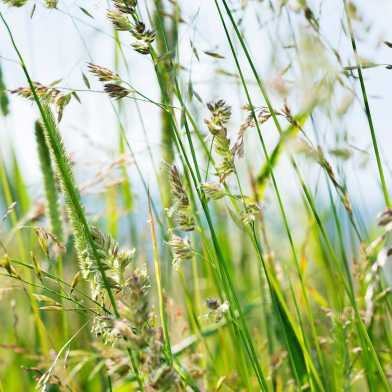
ETH Zurich researchers have been able to show which genes inhibit self-fertilisation in grasses. Plant scientists can now use this mechanism in a more targeted way to breed new varieties of forage grasses as well as rice or barley.
Producing fertiliser without carbon emissions
News
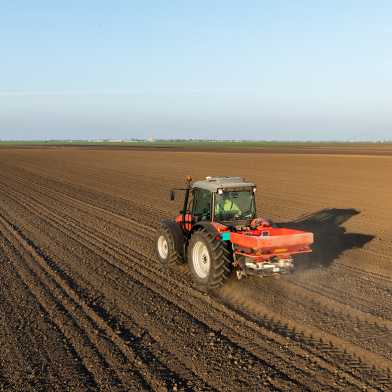
Researchers at ETH Zurich and the Carnegie Institution for Science have shown how nitrogen fertiliser could be produced more sustainably. This is necessary not only to protect the climate, but also to reduce dependence on imported natural gas and to increase food security.
The seeds have germinated
News
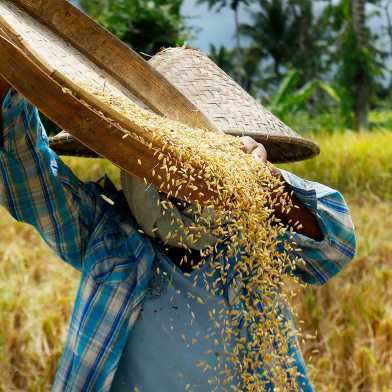
For the first time, farmers in the Philippines have cultivated Golden Rice on a larger scale and harvested almost 70 tonnes of grains this October.This nearly never-ending story began at ETH Zurich.
Food security thanks to faeces and waste
News
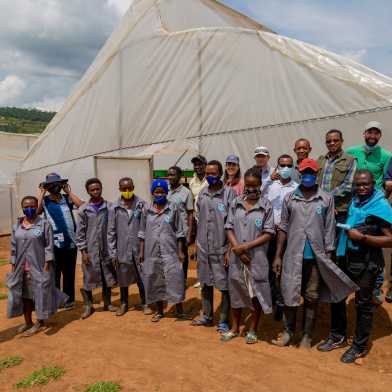
Together with partners in Ethiopia, Rwanda, the Democratic Republic of the Congo and South Africa, ETH Zurich researchers are creating circular economies that use processed organic waste and human excreta as fertilizer or animal feed, resulting in higher crop yields and new jobs.
Budding ideas for food and agriculture
News
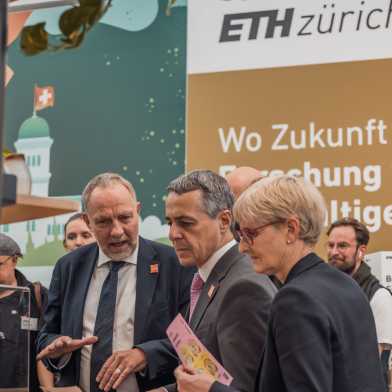
ETH Zurich is at the Olma trade fair in St. Gallen until 23 October. Its exhibition “Where the future begins – research for sustainable agriculture” presents exciting ETH spin-offs and provides playful insights into modern agricultural sciences.
Resistance to mosaic disease explained
News
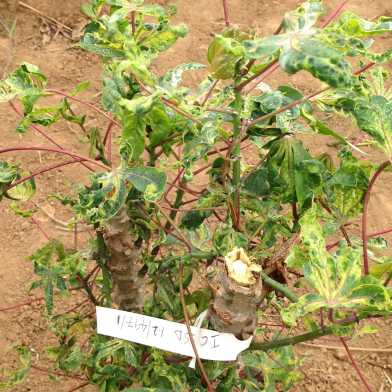
Researchers from ETH Zurich, the United States and Uganda have identified the gene responsible for resistance in certain cassava cultivars against the devastating cassava mosaic disease. This is an important step for breeding virus-resistant cassava varieties.
When it comes to food, less is often more
- News
- Zukunftsblog

For Achim Walter, it’s time we take responsibility for what we eat. As consumers, we have a right to demand a food system that serves the environment, promotes health and protects those in less affluent circumstances.
A talk about how far food travels before reaching our plates
News

Before it reaches our plates, the food we eat usually has travelled a long way. In this episode of the ETH podcast, we talk about how far a breakfast travels and the resulting political and ecological significance.
A fun approach to experiencing agricultural sciences
News

ETH Zurich is at Olma. Until 17 October, the family-friendly ETH booth will showcase “Research for Sustainable Agriculture” and introduce key issues in crops, livestock and agricultural policy through interactive games.
The man setting out to reduce methane produced by animals
News
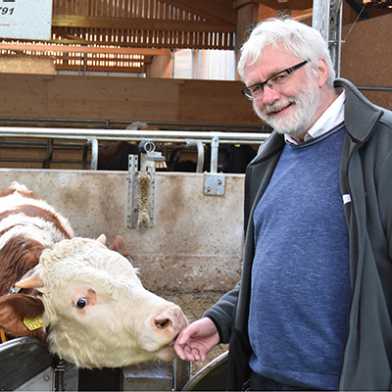
Michael Kreuzer, Professor of Animal Nutrition and pioneer in the prevention of greenhouse gas emissions from livestock, is retiring after 27 years at ETH Zurich.
Professor Bruno Studer about molecular plant breeding
News

In the video series "Ask the Expert", experts from ETH Zurich answer questions from the community. In this episode Bruno Studer talks about molecular plant breeding.
Embryonic development in slow motion
News

Roe deer are among the few mammals whose embryos go into a particularly long period of dormancy. Using modern molecular methods, ETH Zurich researchers have shown for the first time exactly what happens to the embryo during this phase. They have identified signals that control the embryo`s awakening.
Fresh herbs from factory halls and bunkers
News
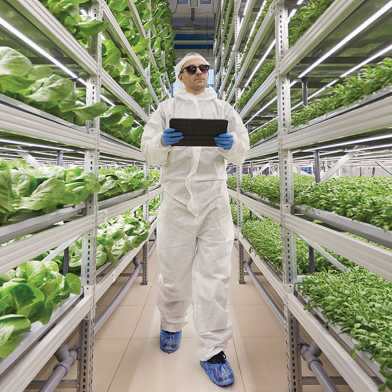
From the factory hall and not the field: ETH spin-off YASAI should soon be harvesting 20 tonnes of herbs a year from an indoor facility. Their “vertical farming” method offers ecological benefits in particular, as more can be produced with fewer resources.
Optimising nature
Globe magazine
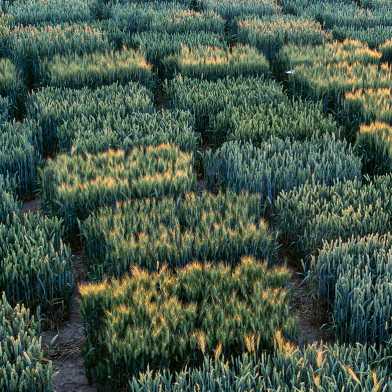
Today, molecular genetic methods can be used to breed sustainable crops - such as multinutrient rice. Researchers are calling for the risk of new plant varieties to be assessed not on the basis of the breeding method, but on the basis of their characteristics.
“We have constantly moved and changed”
News
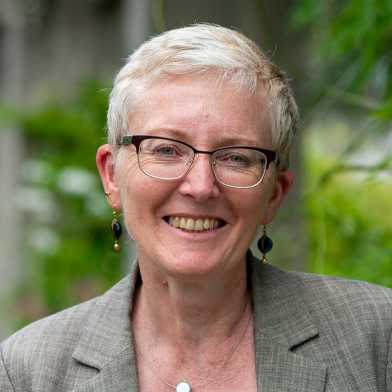
Nina Buchmann, Chair of the Department of Environmental Systems Science, looks back on 150 years of Agricultural Sciences. There have been many highlights, but what really stands out are the sweeping changes in research and teaching.
Mixed cultures for a greater yield
News
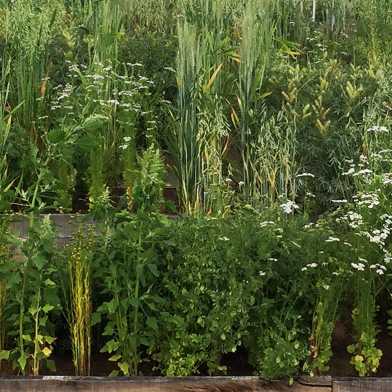
What holds true for meadows would seem to apply to arable land, too: mixed cultures are more fruitful than monocultures. This was the outcome of an ETH Zurich research project led by Christian Schöb.
A check-up for the ground
News
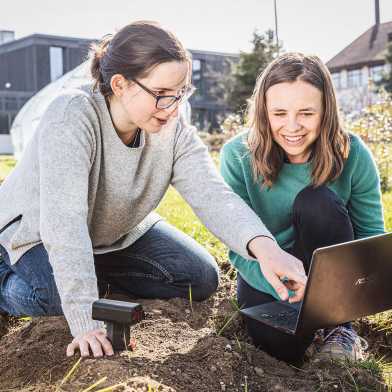
Intense agricultural use is causing soil degradation in many areas. Now researchers at ETH Zurich have developed a rapid test for measuring soil quality on site. This should allow farmers to monitor the health of their land themselves in the future.
What the new pangenome reveals about bovine genes
News
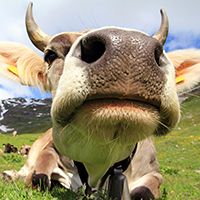
When researchers at ETH Zurich compared the reference genomes between several breeds of domestic cattle and closely related wild cattle, they discovered genes with previously unknown functions.
Insuring crops from space
Zukunftsblog

Extreme weather poses increasing challenges to the agricultural sector. New insurance models based on satellite data may reduce the risk of drought for farmers, writes Robert Finger.
Of cultivation battles and revolutionary women
- News
- Quiz

For 150 years, ETH Zurich has been teaching and researching in agricultural sciences. Test your knowledge of agricultural history in this anniversary quiz!
Agriculture – highly topical yesterday, today and tomorrow
News
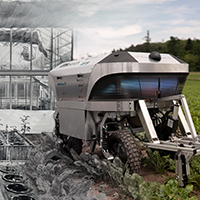
ETH Zurich’s Division of Agriculture was founded in 1871. One glance at its 150-year history is enough to know why the subject is still so important today.
Unusual mutation causes defective sperm in boars
News
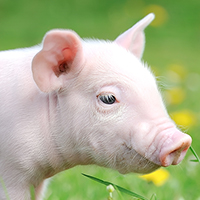
ETH researchers have found a gene mutation that causes the sperm of boars to immobilize. Their discovery will help pig breeders to exclude animals with this genetic defect from breeding in future.
Airtight corn sacks help fight hunger during the COVID-19 pandemic
News
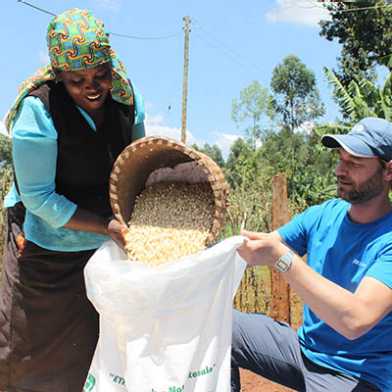
Optimised on-farm grain storage boosts food security in sub-Saharan Africa, as an ETH study in Kenya during the COVID-19 pandemic shows.
Robots that cut, bees that bite
News
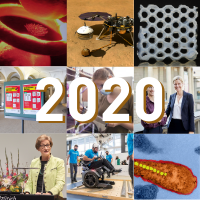
An extraordinary year is drawing to a close. ETH News takes a look back at the highlights that emerged amidst difficult and unsettling times, at ingenious ideas, fascinating science and solidarity in action during – and despite – the coronavirus pandemic.
Governments can curb over-fertilisation
News
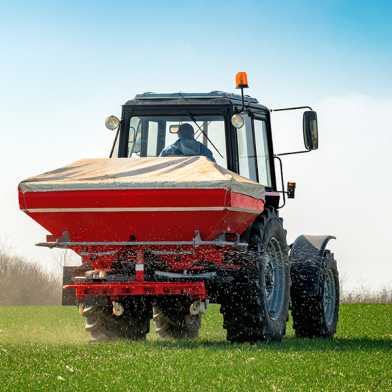
Many countries could be using less nitrogen fertiliser in their agriculture without compromising their crop yields, as an international research team headed up by ETH scientists David Wüpper and Robert Finger are demonstrating.
The quest for a holistic pesticide policy
Zukunftsblog

Bans and simple measures alone won’t solve the problems in plant protection. Robert Finger presses for a comprehensive pesticide policy.
A difficult year for forests, fields and meadows
News

The warm, dry summer of 2018 has left clear traces in various ecosystems. ETH Zurich researchers have found that if the climate continues to warm up, higher altitudes can also expect negative consequences in the future.
Counting wheat heads for more ecology
Zukunftsblog

To Achim Walter it’s clear: the budding artificial intelligence will decisively advance agroecology. But before we can harvest the fruits of AI, computers still have a lot to learn.
Handing over the keys at Früebüel
News

Despite the coronavirus lockdown, the renovation and extension of Früebüel research station in Walchwil (Canton of Zug) was completed nearly on schedule. AgroVet–Strickhof, a research cooperative supported by ETH Zurich, the University of Zurich and Strickhof, now has state-of-the-art research and higher education facilities at its four locations.
How bacteria fertilise soya
News
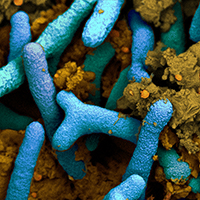
Soya and clover have their very own fertiliser factories in their roots, where bacteria manufacture ammonium, which is crucial for plant growth. Although this has long been common knowledge, scientists have only recently described the mechanism in detail. With biotechnology, this knowledge could now help make agriculture more sustainable.
Bumblebees speed up flowering
News
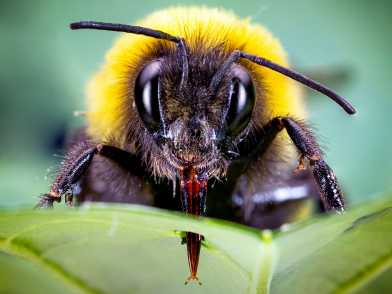
When pollen is in short supply, bumblebees damage plant leaves in a way that accelerates flower production, as an ETH research team headed up by Consuelo De Moraes and Mark Mescher has demonstrated.
Biodiversity yields financial returns
News
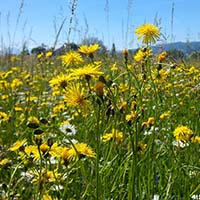
Farmers could increase their revenues by increasing biodiversity on their land. This is the conclusion reached by an interdisciplinary research team including the fields of agricultural sciences, ecology and economics at ETH Zurich and other universities.
What’s driving erosion worldwide?
News
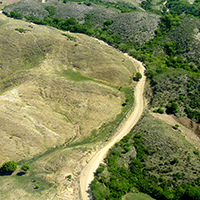
ETH Zurich researchers are reexamining the causes of soil erosion around the world – and have found that countries themselves have a surprisingly strong influence on their soil. This country effect was previously undetected.
Call for a counterproposal to the pesticide initiatives
Zukunftsblog

The two popular initiatives on drinking water and a ban on pesticides are justified, but inflexible. Bernhard Wehrli calls for a counterproposal to tackle the issue.
Turning hype into real alternatives
Globe magazine
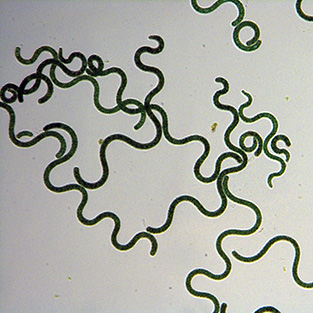
Algae and insects are rich sources of protein for humans and livestock alike. Getting them on restaurant menus and into animal diet formulations still requires a lot of work – but it’s worth the effort.
With pitchfork and drone
Globe magazine
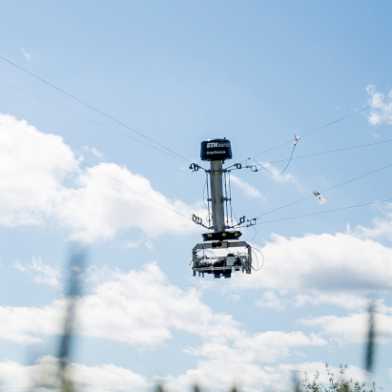
With the advent of smart farming, agriculture has now entered the era of big data. Drones, robots and intelligent imaging should soon be boosting farmyard efficiency and sustainability. Switzerland’s characteristic smallholdings could be one of the chief beneficiaries.
Antimicrobial resistance is drastically rising
News
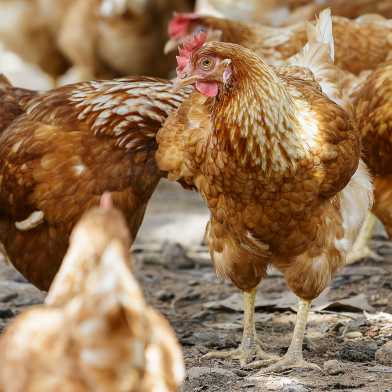
An international team of researchers led by ETH has shown that antimicrobial-resistant infections are rapidly increasing in animals in low and middle income countries. They produced the first global of resistance rates, and identified regions where interventions are urgently needed.
Dry run for cropping systems
- News
- Globe magazine
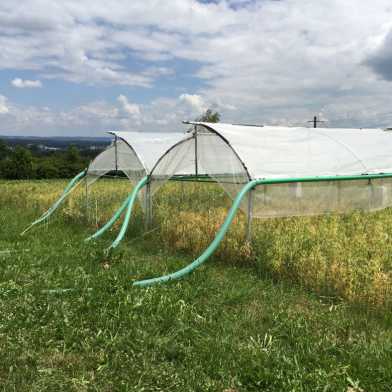
To safeguard the long-term future of agricultural production in Switzerland, ETH and Agroscope are investigating how resistant the country’s cropping systems are to drought.
Advanced breeding paves the way for disease-resistant beans
News
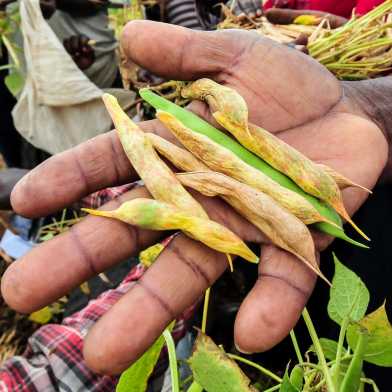
ETH researchers are involved in the development and implementation of a method to efficiently breed for disease-resistant beans in different regions of the world. Their work will help to improve the livelihood and food security of smallholders in developing countries.
Mars mission
News

The current episode of the ETH Podcast is about a researcher who wants to develop an ecosystem for astronauts on a space station or inhabitants of a Mars base.
Biodiversity: Turning crisis into opportunity
Zukunftsblog

It’s getting warmer, the gardens are in bloom – spring at last! A deceptively idyllic scene. Something is missing. Christoph Küffer calls for us to stop looking the other way and take action.
It all comes down to the right technology
Zukunftsblog

Agricultural technology doesn’t have a good reputation. And yet, developed intelligently, it’s the key to enhancing sustainability and biodiversity in agriculture, says Achim Walter.
Organic farming drives sustainable agriculture
Zukunftsblog

Organic production is not a silver bullet, argues Adrian Müller, but it can play an important role in sustainable food systems with the right set of policy interventions.
Promoting talents and new ideas for food systems of the future
News

ETH Zurich and EPFL, in cooperation with their longstanding Swiss industry partners Bühler, Givaudan and Nestlé, are launching the Future Food Initiative. The initiative promotes innovative research approaches for sustainable food production. A select group of talented individuals will receive financial support made possible by CHF 4.1 million in donations from industry partners
Combatting antimicrobial resistance
News

Thomas Van Boeckel is a Branco Weiss Fellow. His postdoctoral research at the Institute of Integrative Biology at ETH Zurich focuses on the overuse of antibiotics in animal husbandry in different parts of the world and potential measures to reduce their consumption.
Swiss agriculture also depends on research progress
Zukunftsblog
Wilhelm Gruissem argues that modern, effective breeding methods are needed to make our agriculture more ecologically friendly and resilient.
Measuring quantity alone does not determine the risk
Zukunftsblog
In order to reduce the risks of pesticide use, they must be measured – which is often done by quantity-based indicators. Yet these often fail to identify risks, writes Robert Finger.
The climate risk of insect pests
News
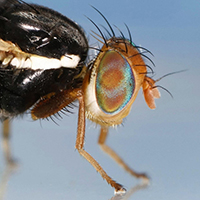
ETH and Agroscope researchers are modelling where insect pests will strike next. This helps agriculture to stay ahead of potential invaders and plan protective measures.
When roots crack and worms crunch
News
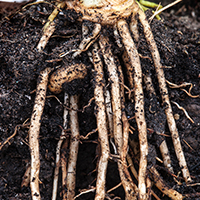
Roots can be “listened to” while growing – and worms when burrowing. Researchers from ETH Zurich and the French National Institute for Agricultural Research present a new method for soil analysis.
Mixed cultures, not monotony
Zukunftsblog

Biologically diverse plant communities are more productive and resistant than monocultures, says Christian Schöb. He calls for breeding programmes focused on polycultures.
Soil bugs munch on plastics
News
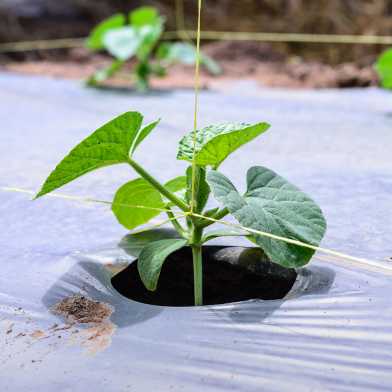
Thin mulch films made of polyethylene are used in agriculture in numerous countries, where they cause extensive soil contamination. Researchers at ETH Zurich and Eawag have now identified an alternative: films made of the polymer PBAT biodegrade in soils.
Learning to work scientifically
News
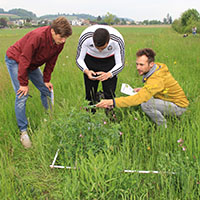
Observing pollinators, counting flowers, assessing biodiversity: as part of the LERNfeld campaign, early-career researchers are introducing primary and secondary school pupils to scientific working methods and approaches.
Administering hormones affects DNA
News
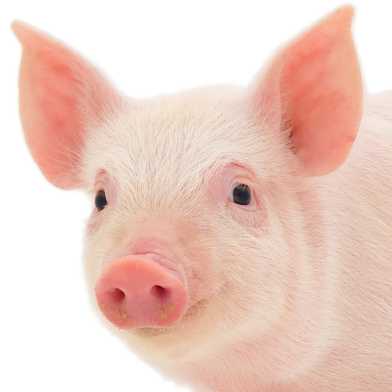
In pigs, endocrine disruptors can alter gene expression in a way that also affects the next generation. This has been shown by a team of researchers from ETH Zurich and the Technical University of Munich. The study findings could potentially apply to humans, too.
Protecting plants intelligently
Zukunftsblog
We must reduce the environmental and health risks of pesticides. However, rather than banning them completely, Robert Finger advocates an intelligent approach to crop protection.
A brief history of agriculture
Zukunftsblog
Where and how we cultivate our crops has always been a matter of dispute – and is today more relevant than ever. But there will be no easy answers in the foreseeable future, says Achim Walter.
Optimum shade for cocoa
News
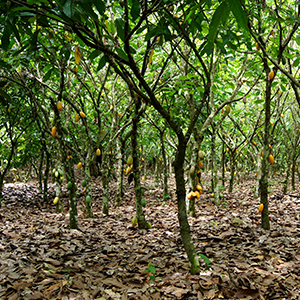
As chocolate becomes ever more popular, demand for cocoa keeps rising. For production to keep up, agricultural practices have to become more sustainable. ETH researchers tested what shade trees can contribute to solving this problem.
How to profit from biowaste
News
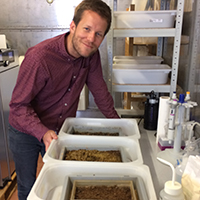
ETH Zurich and Eawag researchers are developing a method to produce animal feed from biowaste products. This is one of 14 projects in the Engineering for Development programme funded by the Sawiris Foundation over the past decade and entering its next 5-year cycle.
What contribution can organic farming make?
Zukunftsblog
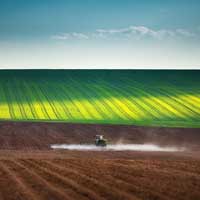
Soil degradation, over-fertilisation, pesticides – intensive farming poses a threat to our very existence. Organic farming is an oft-cited alternative. But can it actually feed the world – and would it be a fully sustainable food system?
Agrovet-Strickhof officially opened
News
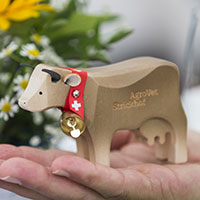
ETH Zurich, the University of Zurich and the canton of Zurich today held an official opening ceremony at Agrovet-Strickhof, their joint collaboration in the livestock sector. The modern facilities will allow the participating ETH professorships to conduct interdisciplinary research with direct links to agricultural practice. Open days are to be held on the weekend of 2–3 September.
Multi-nutrient rice against malnutrition
News
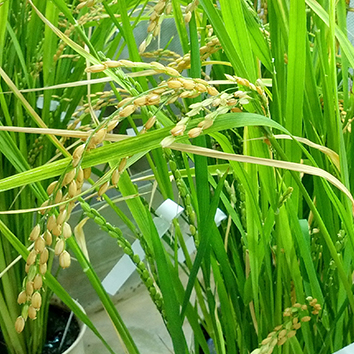
ETH researchers have developed a new rice variety that not only has increased levels of the micronutrients iron and zinc in the grains, but also produces beta-carotene as a precursor of vitamin A. This could help to reduce micronutrient malnutrition, or «hidden hunger», which is widespread in developing countries.
Obstacle course for caterpillars
News
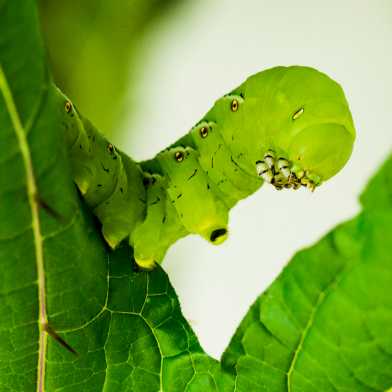
Spines and thorns keep hungry mammals at bay – or at least, that's the conventional wisdom. However, ETH researchers have now shown that spiky growths on plants make life difficult for caterpillars too. This finding could be important for crop breeding.
More variety? Eat buckwheat!
Zukunftsblog
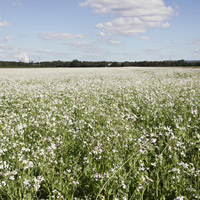
What will it take to make our agroecosystems more diverse and secure? Take buckwheat, for example – an ancient grain-like plant with considerable potential. It's not related to cereals, yet produces storable seeds and can taste anything from deliciously tart to bitter.
More biological diversity in agriculture
Zukunftsblog
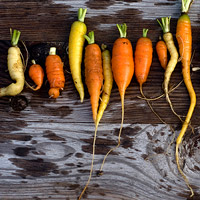
From the wealth of agricultural biodiversity in Switzerland, only a few old fruit and vegetable types find their way to the major distributors. However, these old crops could help overcome the genetic bottleneck in farming.
Cutting down Swiss potato wastage
Zukunftsblog
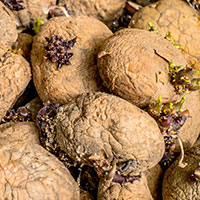
Worldwide about a third of all food gets lost before it reaches our stomachs. For Swiss potatoes this is even more – half of the total harvest. Which measures can reduce the loss, and what effect do they have?
Pigeon peas improve soil fertility
News
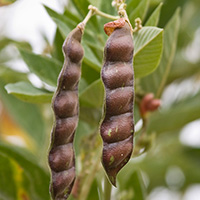
By planting pigeon peas alongside maize, African farmers can improve the soil and their own nutritional intake. This was the conclusion of a field trial in Malawi by Gina Garland, an ETH doctoral student.
The benefits of plant breeding
Zukunftsblog
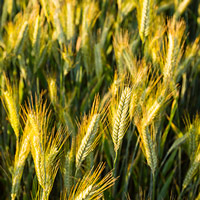
In the midst of today’s organic food boom and romantic glorification of nature, plant breeding is in a difficult position: one often forgets that we as humans owe our very survival to the supply of food. Almost nothing that we eat today was originally found in the natural world.
Cadmium, cocoa beans and chocolate
News
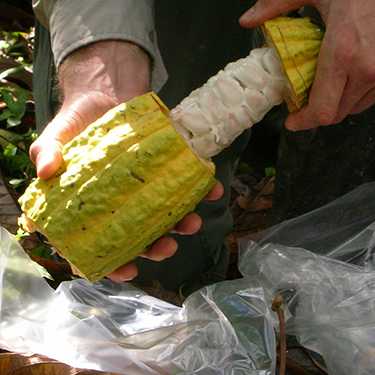
Cocoa from Latin America tends to show higher cadmium levels than cocoa from other growing areas. ETH researchers have been investigating the underlying cause in Honduras and Bolivia.
The future of plant breeding
Zukunftsblog
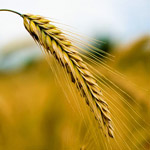
People began to domesticate wild plants more than 10,000 years ago. Since then, we have been breeding crops in order to make them more resistant and to increase yields. New techniques now make it possible to modify genetic material precisely, which raises questions that our society must discuss and try to answer.
Eye in the sky to monitor crops
News
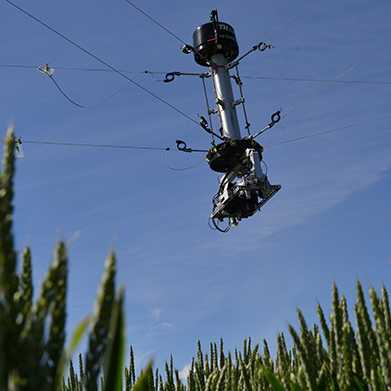
Plant scientists at ETH Zurich have recently celebrated a world first at the ETH Zurich’s research station in Lindau-Eschikon: the launch of the ETH Field Phenotyping Platform (FIP), a unique crop phenotyping system. This gives researchers an incredibly accurate tool for measuring and monitoring the health and performance of field crops.
A peachy defence system for seeds
News
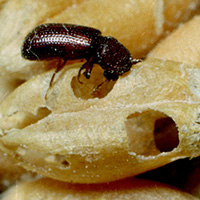
ETH chemists are developing a new coating method to protect seeds from being eaten by insects. In doing so, they have drawn inspiration from the humble peach and a few of its peers.
A model for digital agriculture
Zukunftsblog
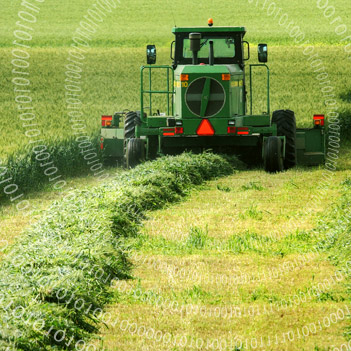
The industrialisation of agriculture began some 100 years ago; today we are witnessing its digitalisation. But the wave of Big Data may sweep farmers off their land unless they prepare their fields and mark out a course in good time. Only then can digital agriculture address the right questions.
Hehre Hülsenfrüchte (Teil 2): Soja – das schwarze Schaf?
Zukunftsblog
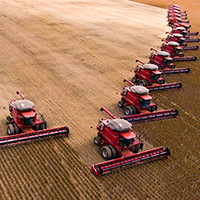
Soja ist die weltweit am intensivsten angebaute Hülsenfrucht – dies im wahrsten Sinne des Wortes. Die Anbaufläche beträgt rund 100 Millionen Hektar; 25-mal die Fläche der Schweiz. Drei Viertel dieser Soja ist gentechnisch verändert. Dennoch ist die Hülsenfrucht nicht nur für Big Business, sondern auch für die Bio-Landwirtschaft interessant.
Hehre Hülsenfrüchte (Teil 1): Von wegen nicht die Bohne
Zukunftsblog
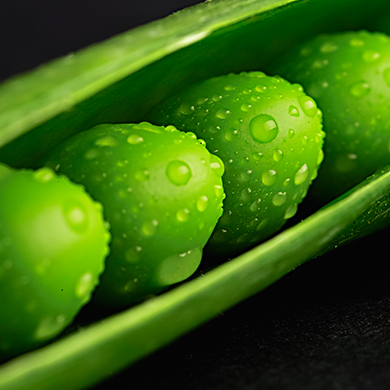
Die UNO hat 2016 zum internationalen Jahr der Hülsenfrüchte erkoren. Doch warum gebührt diesen Früchten derartige Ehre? Erbse, Bohne, Linse und Co bergen das Potenzial, die globale Landwirtschaft schonend zu intensivieren. Sie verdienen es darum klar, dass wir uns stärker für sie interessieren.
Bread and games: Agricultural sciences at ETH
Zukunftsblog
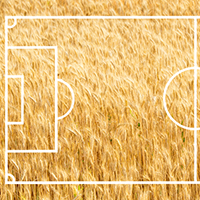
Agricultural sciences? Can you still study that? And what is it good for? These are questions that teachers and students in this subject are always asked. Yet these degree programmes are now more relevant than ever – not only due to the new BSc and MSc regulations that will come into effect in autumn semester 2016.
The first comprehensive collection of plant bacteria
News

Researchers in Zurich and Cologne have collected a large number of bacterial strains that live on plants. The collection marks the beginning of a promising new field of research. Scientists can now systematically perform targeted laboratory investigations into how bacteria promote the growth and health of plants.
Potato harvest reduced by half
News
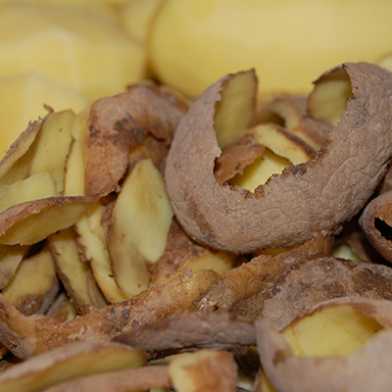
On the way from field to fork, more than half of the potato harvest is lost. This is according to a new study conducted by researchers from Agroscope and ETH Zurich.
A cure for vitamin B6 deficiency
News
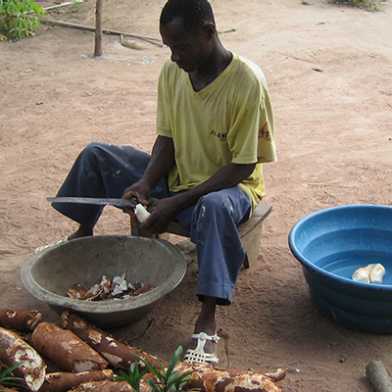
Plant scientists have engineered the cassava plant to produce higher levels of vitamin B6 in its storage roots and leaves. This could help to protect millions of people in Africa from serious deficiencies.
6 professors at ETH Zurich appointed
News

At its meeting of 8/9 July 2015, the ETH Board appointed six professors at ETH Zurich in accordance with the application submitted by ETH Zurich President Lino Guzzella.
Research priorities for a sustainable food system
News
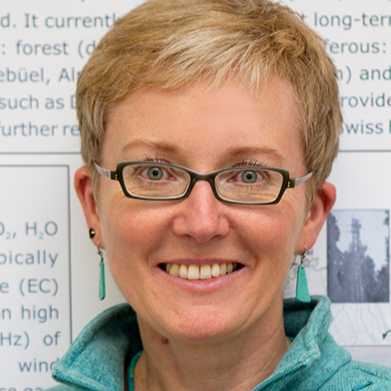
Among the great research challenges for the future will be the efficient use of resources and the provision of healthy and safe food. Further details are given in a new study carried out by the World Food System Center at ETH Zurich commissioned by the Federal Office for Agriculture. An interview with ETH professor Nina Buchmann, chair of the World Food System Center and co-author of the report.
The Agrovet-Strickhof construction project is underway
News

The building permit has been issued: ETH Zurich, the University of Zurich and the Canton of Zurich have permission to build the Agrovet-Strickhof, a jointly operated agricultural education and research centre in Eschikon Lindau. Research director Carla Soliva and IT director Hans-Rudolf Wettstein are here to share their thoughts on the planned buildings and the opportunities for livestock research.
How horses express emotion
News
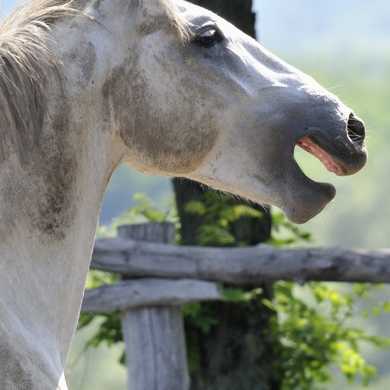
Horse whinnies are made of two different fundamental frequencies. This particularity allows horses to express both positive and negative emotions, and at the same time convey the strength of these emotions. This is what researchers at ETH Zurich learned in the course of a research project that seeks to understand the evolution of emotion expression. Until now, it was not known that horses whinny in two voices.
Ein Paradies für Wildbienen
Zukunftsblog
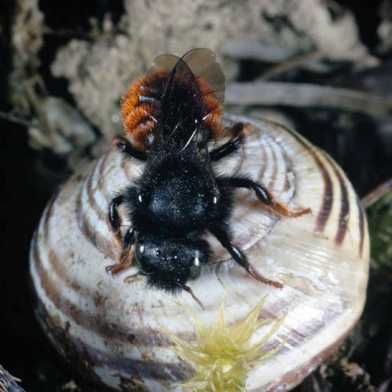
Die rund 600 Wildbienenarten der Schweiz unterscheiden sich stark in ihren Blütenpräferenzen und Ansprüchen an Niststrukturen. Um möglichst viele und auch seltene Arten zu fördern, entstehen auf dem Gelände der ETH Zürich zwei neue Wildbienenparadiese, die diese Ansprüche vereinen.
Good news and bad news for oil palm smallholders
Zukunftsblog
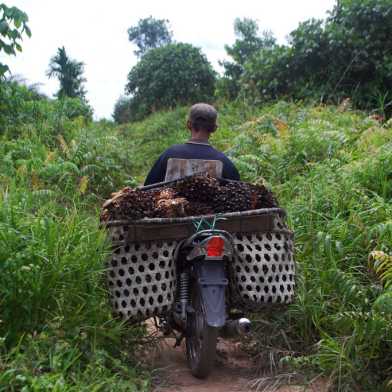
Over the last year, palm oil prices have dropped drastically. Has oil palm turned from blessing to curse for small-scale farmers? Depending on the region, this development may hold some opportunities for smallholders.
Celebrating soils
Zukunftsblog
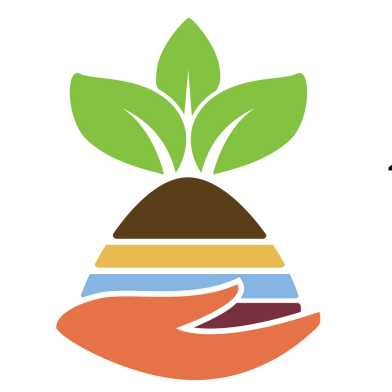
While the significance of healthy soils for all life on earth, including human life, is becoming more apparent, we remain minimally committed to their conservation. It is time to use our advances in soil knowledge to manage our soils more sustainably.
Of pastures and oil palm
Zukunftsblog
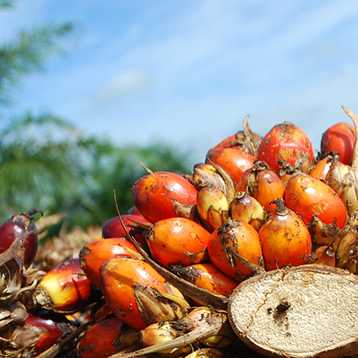
Using pasture lands to develop oil palm cultivation can create a competitive advantage to producers in South America while sparing natural ecosystems, but it will require improvements in the ranching sector to avoid negative indirect effects.
Biodiversity mechanisms critically examined
News
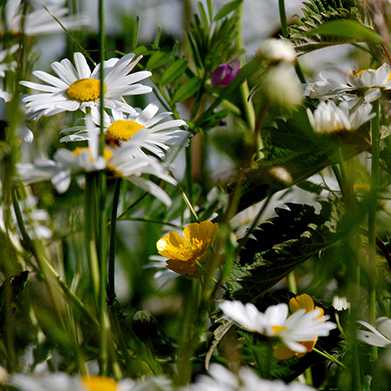
The biologist Dörte Bachmann receives the Hans Vontobel Award 2015. In her doctoral thesis, Bachmann examined why biomass production of diverse grassland is larger than that of less diverse grassland. The findings captured people's attention.
6 professors at ETH Zurich appointed
News

The ETH Board appointed six professors at ETH Zurich as part of its meeting of 4/5 March 2015, in accordance with the application submitted by ETH Zurich President Lino Guzzella.